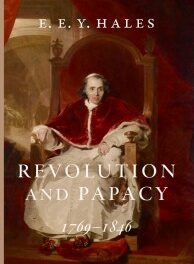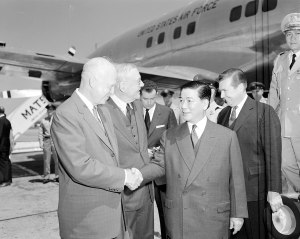We support our Publishers and Content Creators. You can view this story on their website by CLICKING HERE.
It seems to me that solitude is the natural habitat of the philosophical and imaginative conservative today. He is essentially one who is “unfit for the modern world,” an antiquated being devoted to impossible ideals like Don Quixote. In order for him to remain himself, he must enter into communion with like-minded souls—or, failing that, enter into solitude as much as possible.
“We have to sequester ourselves and repossess ourselves.” —Michel de Montaigne
For some, solitude is an occasional retreat from the world to refresh the soul’s energies. For others it is a more or less permanent way of life. So it was for Michel de Montaigne, inventor of the essay (and thus, I suppose, our patron saint at this journal). After a number of years of solid civil service, Montaigne retired from public life at the age of 38 to study and write in seclusion, something which being a man of means made easier. He wrote about solitude in the 39th of his Essays, drawing on what the classical tradition had to say on the topic from Cicero to Seneca and finding some of it insincere or inadequate.
Montaigne felt that Cicero, for example, praised solitude merely in the guise of wanting further fame and glory while in solitude. Solitude, in his case, was a cover for vainglory and ambition. Whereas true solitude, for Montaigne, involved an utter indifference to and rejection of those external things in favor of the goods of the mind. What Montaigne seems to have valued in solitude above all is the sense of self-possession that it brings, the independence and freedom from the conformity of society. “‘Tis not enough to shift the soil only; a man must flee from the popular conditions that have taken possession of his soul, he must sequester and come again to himself.” What might appear at first like selfishness or indifference is actually the cultivation of the soul, an act that is necessary for a human being to be an authentic self instead of a hapless automaton.
“Now, the aim of solitude is, I think, always the same: to live more at leisure and at one’s ease.”
Montaigne poses the powerful analogy of the back room, the “inner chamber” of the soul, where solitude dwells free from the pressing concerns of the workaday world. It strikes me that of the writers that I have read who have written on solitude, Montaigne is pretty adamant and uncompromising on the subject. Being in society, for Montaigne, is contagion and corruption. Withdrawal is the only way to maintain your purity and be yourself. Undoubtedly Montaigne knew whereof he spoke, for we are told that he emerged from public life disillusioned with the corruption, duplicity, and selfish ambition of Renaissance affairs. The theme of retreat and solitude sounds again and again in the Western tradition, from Cicero and Seneca to St. Augustine and an assortment of modern thinkers.
Dr. Mark Malvasi, a Senior Contributor at this journal, seems to be on the same page as Montaigne (and myself too) when he writes that “Under such conditions [those of modern culture], there is no way for anyone to be who they really are, except by withdrawing into the self and remaining alone…. To remain centered in the self is the only alternative to a hectic, unruly, deranged, and falsified life.” This to me expresses Montaigne’s spirit too, and I feel that both Montaigne and Malvasi bring out the tragic dimension of contemporary life (whether that be the 16th century or the 21st) in a most poignant way.
And what about the positives? In withdrawing into solitude, one is free to construct a conception of life that is more about imagination and faith and spirituality than the usual standards of matter-of-fact materialism that prevail in the workaday world. Speaking for myself, I am bored to tears by, and am not even capable of participating in, conversations that center around progress, speed, money, utility, and mere actuality (i.e., what happened last Tuesday). Seeing life in terms of sterile units of calculation leaves me cold. I must have faith, imagination, beauty, and similar intangibles. So, I retreat into solitude, where I can ponder these things and construct a life according to them.
Another soul brother in solitude is Brother Thomas Merton, whose writings on the subject (such as Thoughts in Solitude) hit many of the same notes as Montaigne and our own Dr. Malvasi. Solitude saves one from being absorbed into the crowd, technology, and the sinister entity known as Mass Man. It rescues one from distractions, so as to concentrate on the one thing necessary. Merton considers solitude in the same breath with two other great spiritual subjects, silence and prayer. Above all, solitude is the state of being by which one can find one’s center and one’s God-given mission in life.
“It is all very well to insist that man is a ‘social animal’—the fact is obvious enough. But that is no justification for making him a mere cog in a totalitarian machine—or in a religious one either, for that matter.”
Merton is careful to distinguish solitude as a sometime refreshment and solitude as an outright way of life (one to which few are called, of course):
“The truly solitary life has a completely different character from the partial solitude which can be enjoyed from time to time in the intervals allowed by social living. When we receive our solitude by intervals, we taste its value by contrast with another value. When we really live alone, there is no contrast.”
The first kind of solitude is an “interval,” whereas the second is “a continuous whole,” whereby “we can work out our salvation by quiet, continued action.” At the head of those who are called to solitude are members of religious orders like Merton himself. Writers and artists also often qualify for the solitary fraternity. As a writer, solitude is for me a kind of substance or fabric which I must continually shape and form. Solitude is not a carefree dreamland; it requires discipline and organization no less than other ways of life.
St. Augustine comes to mind as another great figure who fled worldly success and embraced solitude to do his mental work. Did he feel any qualms about leaving behind the success story of the Roman Dream? He must have realized that he was accomplishing far more by withdrawing into solitude and writing his voluminous works, now recognized as among the greatest works of intellect, than he would have by staying in the public sphere and delivering hundreds of slick rhetorical addresses which would be unknown today.
It remains to be considered whether solitude is endemic to the conservative temperament. Conservatives, philosophical and imaginative ones, are often those who don’t like the general drift of the world these days, who believe in a transcendent order embodied in faith, tradition, and the recorded experience of humanity. We believe, among many other things, that amassing money and technical marvels will not lead to happiness. We tend to take a shine to the past, which we see as a source of accumulated wisdom, and if we like anything in the present, we tend to value it in terms of its relation to what has been.
And here is the dilemma: you are called to live some kind of authentic existence even though you feel that nothing, or very little, authentic remains around you. Have you ever had this feeling that nothing feels real anymore? That life is being lived at second or third hand? It haunts me many a time, and I don’t know the cure for it other than solitude. In other words: while I don’t know the answer, whatever the answer turns out to be, I know I will only discover it in solitude. “Be still and know that I am God,” and, with faith, the answer to the burning question of our lives will come to us.
There are two types of people in this world (I know this statement usually precedes some heinous generalization, but bear with me). There are those who fit into the world splendidly, receive all the honors gladly, and are content where they are. Then there are those who feel ill at ease and out of place, who don’t want to be where they are. Christ continually “withdrew to a solitary place.” Why? It would take a sermon to unravel the reasons. Surely, he felt oppressed by the crowds and their demands and needed to reconnect with his Father at hectic moments; he also no doubt wanted to model for us the importance of solitude and prayer to our human condition. Perhaps, as intimated by Montaigne and the others, relishing his communion with the Father was the Son’s way of remaining himself.
It’s not simply that corruption and depravity surround us; they always have. But our age has added overproduction, over-busyess, and overabundance. In a word, we live in a world in which there is too much of everything—too much to see, hear, and take in. As Dr. Malvasi writes, in periods of cultural disintegration “culture becomes too intricate and abstruse, overpowering human intellectual and moral capacities.” The cultural and social fragmentation of modern times, characterized by the rootless and transitory existence of C. S. Lewis’s “urban blockhead,” have often made true communion impossible, isolating individuals within themselves. In such a situation, retreating into solitude is the only option for many of us who or the most part cannot or don’t care to participate in the public world. We believe that that world is drowning in a sea of banality and technical minutiae and for this reason no longer offers anything worth looking at, listening to, or thinking about. We would rather withdraw from it all and simply savor the timeless fruits of culture in silence and solitude.
So, one of the lessons of the great tradition on solitude is that solitude allows one to escape conventional assumptions and thought patterns (or cliché’s) and frees one to pursue a more exacting reflection on reality, including contemplation and prayer. Dr. Malvasi writes, with reference to the modern situation: “Before expressing a thought, opinion, idea, or belief, before taking any action, persons must pause and enter into the self to determine whether that thought, opinion, idea, belief, or action is their own.” Oftentimes our thoughts are molded by what other people think we ought to think. Solitude can be an excellent way of finding out what we actually do think with the aid of higher wisdom than that of the crowd.
It seems to me that solitude is the natural habitat of the philosophical and imaginative conservative today. He is essentially one who is “unfit for the modern world,” an antiquated being devoted to impossible ideals like Don Quixote. In order for him to remain himself, he must enter into communion with like-minded souls—or, failing that, enter into solitude as much as possible. Most probably he is never going to find a vast communion of like-minded souls at first hand. And as culture and community deteriorate, one feels oneself more and more isolated anyway. So, there is really no choice. Whether one chooses solitude or has it thrust upon one, the result is the same: alienation from the world around one, retreat into a private inner world that can be richer than anything to be found out there. There is, unfortunately, little else that the lone individual can do, especially in modern times when large abstract forces seem to be in control. In times past, a person could feel some sense of identification or belonging within his or her own time, but this is becoming less and less possible for many of us.
As for myself, I felt out of step with the world around me from early on; from the age of five or six, solitude has been my constant companion. This bond has only solidified with time. At long last, I have realized to my great profit that I could make solitude a profession. It turns out that solitude has great cash value, in the ironic and metaphorical way that William James used the term. I have said before that I am a pessimist about the world and an optimist about the universe. At present I am, in the words of essayist Joseph Epstein, “quite happily out of it” and am working on a method for escaping from the contemporary world entirely. The way I figure it, if countless protagonists of The Twilight Zone managed it, why can’t I?
Perhaps my words will resonate with only a small segment of readers. Some doubtless have managed to raise for themselves some kind of community, to fit into some establishment, or to make peace with the contemporary environment. It is nice work if you can get it. For the rest of us, who cannot join the dance, we must content ourselves with solitude and bumble along as best we can in our own independent way.
One thing I’m sure of is that constantly brooding and fussing about the question of alienation isn’t going to help. One of the things our civilization most suffers from is self-consciousness. What we need instead is the kind of self-possession that Montaigne, Merton, and other great minds preached. It is not self-absorption or indifference to other human beings, but rather the kind of self-determination that everyone needs to be a free and rational human being—a precondition to the ability to relate to anyone at all. A form, in short, of the ancient and eternal adage “know thyself.”
The Imaginative Conservative applies the principle of appreciation to the discussion of culture and politics—we approach dialogue with magnanimity rather than with mere civility. Will you help us remain a refreshing oasis in the increasingly contentious arena of modern discourse? Please consider donating now.
The featured image is “Solitude” (1824) by Augustus Earle, and is in the public domain, courtesy of Wikimedia Commons.

 Conservative
Conservative  Search
Search Trending
Trending Current News
Current News 






